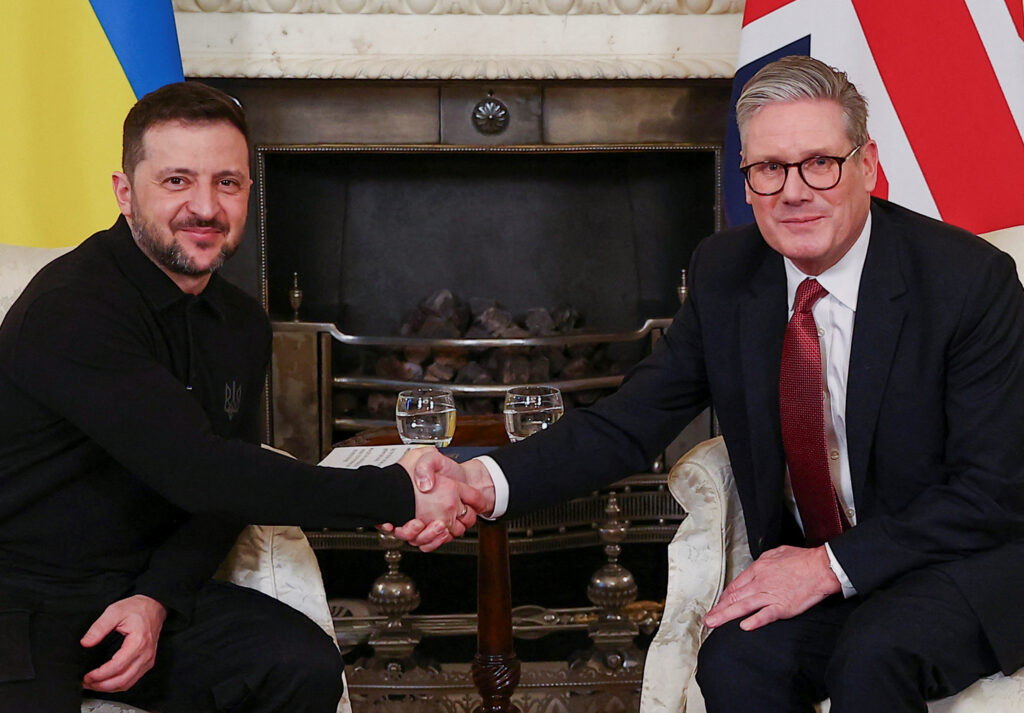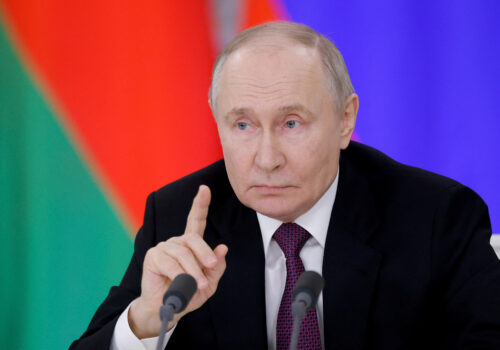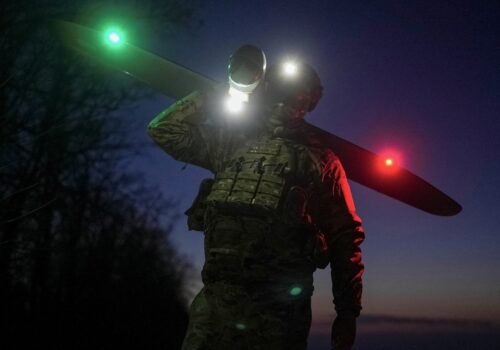UK Prime Minister Keir Starmer hosted a virtual meeting of Western leaders on March 15 to discuss rapidly developing plans for a “coalition of the willing” to oversee the implementation of a possible peace deal between Russia and Ukraine. The event was the latest in a series initiated by Starmer as he looks to provide Ukraine with long-term security and reduce the threat of a renewed Russian invasion.
Earlier in March, the British PM and his team also reportedly worked extensively behind the scenes to repair the damage following Ukrainian President Volodymyr Zelenskyy’s disastrous Oval Office meeting with US President Donald Trump and Vice-President JD Vance. These efforts helped prepare the ground for a US ceasefire proposal that was subsequently accepted by Ukraine in Saudi Arabia.
Starmer’s recent contributions underline Britain’s longstanding commitment to Ukraine. Since the eve of Russia’s full-scale invasion more than three years ago, the UK has consistently been at the forefront of efforts to boost Ukrainian resilience and oppose Russian aggression. With the future of US assistance to Ukraine now in question amid the Trump administration’s pivot away from Europe, Britain is taking the lead as the continent adapts to new security realities and seeks to prevent a Russian victory in Ukraine.
Stay updated
As the world watches the Russian invasion of Ukraine unfold, UkraineAlert delivers the best Atlantic Council expert insight and analysis on Ukraine twice a week directly to your inbox.
Since the onset of Russia’s invasion in early 2022, the UK has been among Ukraine’s biggest backers. According to data from the Kiel Institute for the World Economy, British military aid up to the end of 2024 totaled $10.4 billion, putting the country in third place behind the United States and Germany among Ukraine’s international partners. Crucially, the UK has also often led by example in providing Ukraine with new categories of weapons including modern battle tanks and cruise missiles, paving the way for others to do likewise.
In addition to direct military aid, British support for Ukraine also extends to cooperation in areas including cybersecurity, intelligence, and countering hybrid threats. The UK continues to assist in the reform of the Ukrainian defense sector and provides training for Ukrainian military personnel. In the diplomatic arena, Britain advocates for tough sanctions measures against Russia and draws international attention to the Kremlin’s crimes in Ukraine.
This strategic support for Ukraine has enabled Britain to reassert its leadership position on the global stage following the country’s exit from the European Union. By supporting Ukraine, post-Brexit Britain has demonstrated that it remains a force in international affairs and a major contributor to European security. British support for the Ukrainian war effort has also made it possible to overcome Brexit-related tensions and build new partnerships with key European countries such as Germany, France, and Italy.
Eurasia Center events

British backing for Ukraine is about much more than mere power projection, of course. There is a broad cross-party consensus in Westminster that Europe’s collective security is inextricably linked to the outcome of the war in Ukraine. The full-scale Russian invasion of Ukraine has coincided with a particularly turbulent period in British politics, with four different prime ministers and a change in government since February 2022. Throughout all this, the country’s position on Ukraine has remained largely unchanged.
Ties between London and Kyiv are now poised to strengthen further. The exact nature and objectives of a potential international peacekeeping force for Ukraine are not yet clear, but if current plans proceed as anticipated, it seems all but certain that British troops will feature prominently in any deployment. This would deepen a bilateral relationship that looks set to be at the heart of Europe’s new security architecture in the coming years.
As Europe adjusts to the dramatic shifts in US foreign policy initiated by the Trump administration, Britain is playing an important role as a transatlantic intermediary, while also leading European efforts to bolster Ukraine’s defense against Russian aggression. Almost ten years after the country voted to leave the EU, Britain is now once again proving itself indispensable to European security.
Alina Hrytsenko is co-founder of the Kyiv-based Research Solutions analytical network. She was previously a senior consultant at the National Institute for Strategic Studies.
Further reading
The views expressed in UkraineAlert are solely those of the authors and do not necessarily reflect the views of the Atlantic Council, its staff, or its supporters.

The Eurasia Center’s mission is to enhance transatlantic cooperation in promoting stability, democratic values, and prosperity in Eurasia, from Eastern Europe and Turkey in the West to the Caucasus, Russia, and Central Asia in the East.
Follow us on social media
and support our work
Image: Britain's Prime Minister Keir Starmer and Ukrainian President Volodymyr Zelenskyy shake hands during a bilateral meeting at 10 Downing Street ahead of a summit of European leaders, March 1, 2025 in London, Britain. (Peter Nicholls/Pool via REUTERS)





